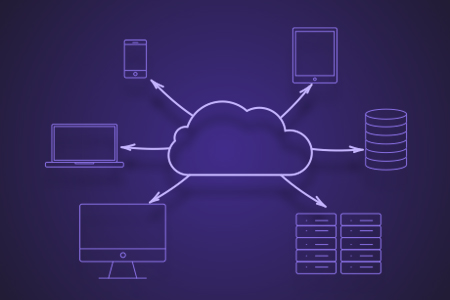Almost every enterprise makes use of computers these days. To record their daily activities, communicate with their clients, conduct their business, and carry out other such things. Now imagine what would happen if these computers break down? We're not only talking about equipment loss and related service charges alone here but also about crucial downtime which may well translate into a huge business loss for the enterprise.
Enterprise Management Services
How can enterprises prevent this? By hiring a group of computer experts – if your enterprise cannot afford a dedicated IT admin team - who can ensure your enterprise computers stay healthy by servicing them at regular intervals. These bunch of security experts usually go by the name Managed Service Provider(s) (aka MSP).

How MSPs Can Come To The Rescue Of Enterprises
As stated earlier, MSPs help enterprises using computers manage their computer systems (IT infrastructure) efficiently. They don't visit the site but do so remotely. Their objective is to keep all the computer systems in the enterprise network healthy on a proactive basis and usually do so under a subscription model.
Technically speaking, MSP(s) specialize in Remote Monitoring and Management (RMM) of various enterprise networks using the relevant RMM tools.
The Business Model MSP(s) Adopt
MSP(s) usually operate using two business models. One is known as break/fix and the other is managed contracts. MSP(s) using the break/fix model will charge their clients 'on the spot'. That is for every fix for your break that they fix. They'll charge for equipment replacement and by the number of hours they work. Whereas MSP(s) using managed contracts will fix a monthly sum for the servicing rather than charging you each time there is a break in your network which needs to be fixed.
Benefits of Using MSP(s)
Managed Service Providers can prove extremely useful for enterprises that lack the technical expertise needed for maintaining their IT infrastructure. MSPs can mitigate security threats, prolong the life of your network devices, reduce the overall burden on your network, and above all monitor your network all the time. Let's take a look at some of the other benefits they offer.
- Increased Productivity: Be it a bank or a hospital, they can work efficiently only if their computers are in good condition and working well. And the lesser the downtime, the better the organization's productivity will be. Therefore subscribing to the services of the right MSP provider can prove hugely beneficial for enterprises without the proper technical expertise.
- Ease of Administration: Your network-related administrative tasks will reduce greatly when MSPs take over. And since you don't have to bother about network related issues anymore, you'll be able to focus more on other aspects of your business. Simply put, your administrators will benefit a lot when you subscribe to the services of an MSP.
- Disaster Prevention: The last benefit we would like to mention is disaster prevention. This is the ultimate aim of MSP(s). They'll not only prevent disaster by taking proactive security measures but will keep your network prepared for the worst-case scenario as well. Therefore, with MSP by your side, your IT infrastructure will be 'disaster-ready'.
To Summarize:
- MSP stands for Managed Service Providers
- MSPs are responsible for managing enterprise network infrastructures
- MSPs use RMM tools to manage enterprise network infrastructures
- MSPs operate using 'break/fix' as well as 'managed contracts' business models
- MSPs can increase enterprise productivity and prevent network disasters
- MSPs make enterprises 'disaster-ready'